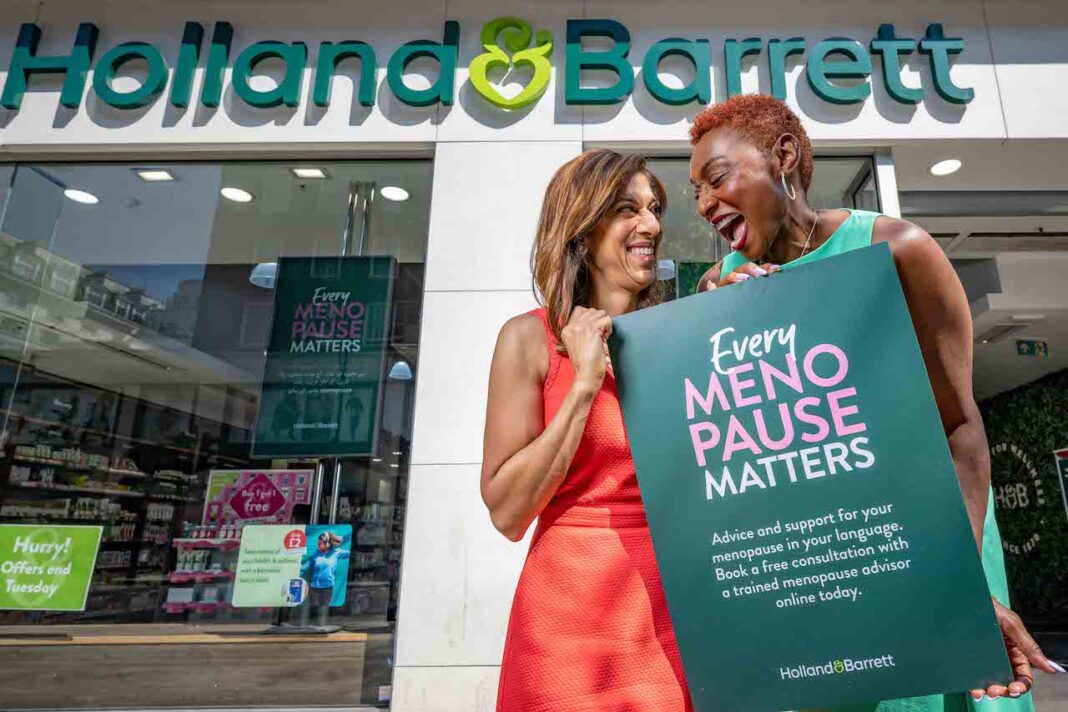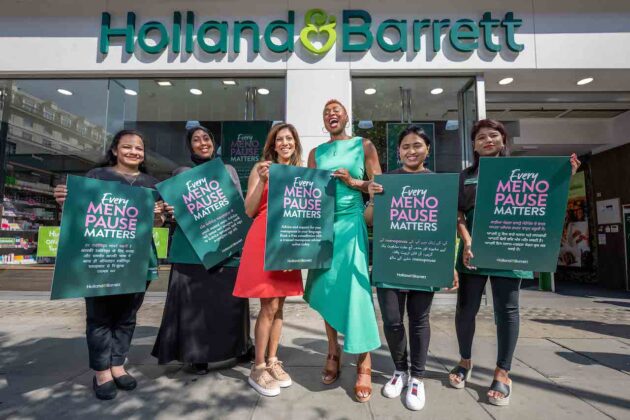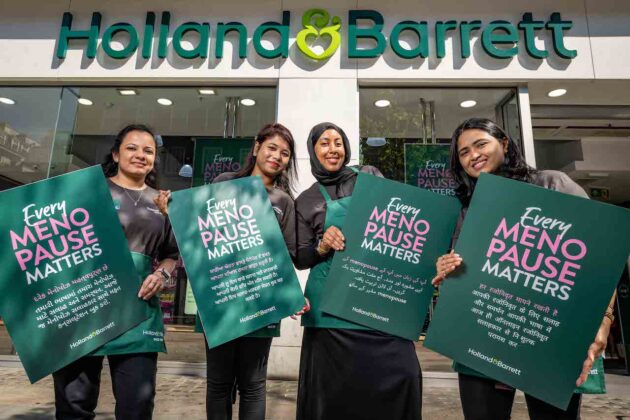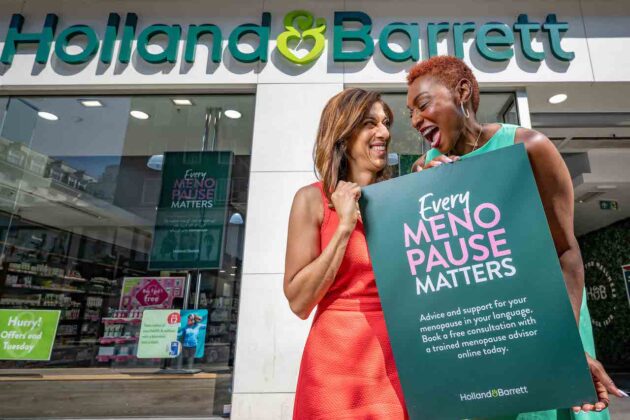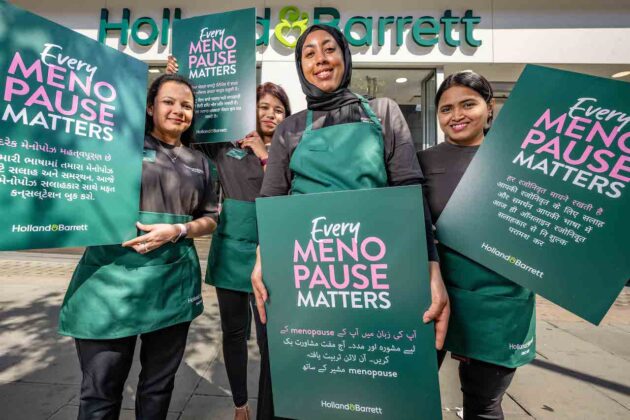Through its new Every Menopause Matters campaign Holland & Barrett (H&B) is attempting to address the menopause ethnicity gap, after research revealed that one in two women from minority ethnic backgrounds feel excluded from the menopause conversation.
An online survey by YouGov carried out between 30 May and 7 June assessed a sample size of 772 Black, Asian and minority ethnic women aged 40-plus. The data gathered exposed stark inequalities in menopause support, with 51% of respondents saying that the advice available is unrepresentative and ‘too focused on the experiences of White women’. Additionally, 26% of women in minority ethnic communities find it difficult to access menopause support which is relevant to their specific backgrounds.
Responding to the research H&B is today launching a new phase of its menopause campaign work to increase inclusivity in the category and offer more ‘diverse and personalized advice, tailored to different needs’.
In the South Asian community, women’s health isn’t talked about generally
Because 31% surveyed believe their experience of menopause would have been different if they’d had access to a female healthcare professional of the same ethnicity as them, and because 15% stated that ‘communicating in their native language would have made a positive difference’, Every Menopause Matters will offer a multi-language support service. Delivered via free online consultations the service features trained H&B advisors offering ‘guidance and symptom support’ in multiple languages, beginning with Hindi, Punjabi, Gujarati and Urdu. Online content will be available in several languages and a pilot will see H&B’s ad campaign translated into Hindi ‘to reach and support a wider community of women for whom language may be a barrier’.
Cross-cultural research has also shown that a woman’s race and cultural background may impact how she feels about menopause, the severity of symptoms she experiences, when they start and how long they last for: “On average, Black women start menopause two years earlier than their White European counterparts and will typically reach menopause aged 49,” reports H&B. “A Swan study found that for Black women, symptoms such as hot flushes and night sweats are more often severe and last longer than those in White, European women. The symptoms in Asian women are different again.”
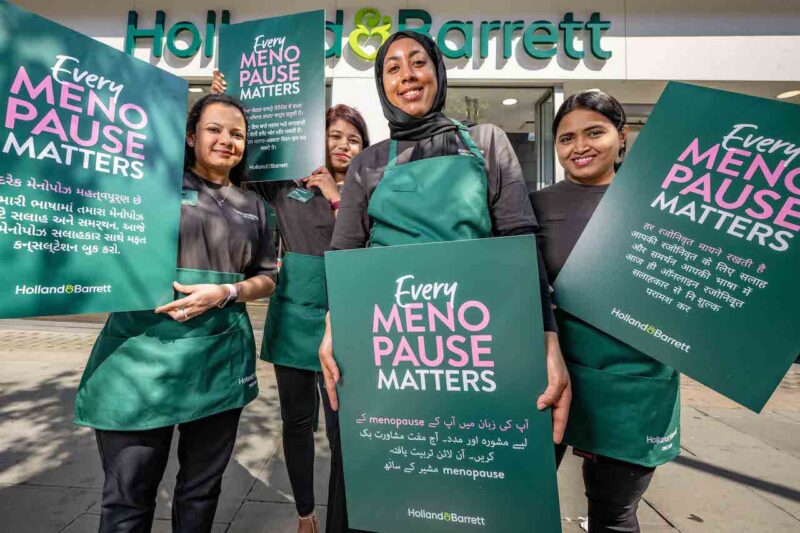 Recognizing the need for a tailored customer service approach, the retailer has delivered extended training to all 4,000 staff members to strengthen their knowledge on the varying symptoms of and solutions to menopause.
Recognizing the need for a tailored customer service approach, the retailer has delivered extended training to all 4,000 staff members to strengthen their knowledge on the varying symptoms of and solutions to menopause.
Lina Chan, director of women’s health at H&B, comments: “We have long supported women’s wellness and while a lot of work has taken place to break the taboo surrounding menopause, our customers have told us there’s still much more to do to represent every woman’s experience. That’s why we’ve worked with our colleagues, and leading campaigners such as Menopause Mandate and Wellbeing of Women, to look at simple ways we can help all women to be heard and supported, both through H&B and out in the communities we serve. We know there is more to do to make the menopause conversation truly inclusive of all experiences, and this is our next step on that journey.”
The initiative is receiving support from menopause campaigner and Olympian Michelle Griffith Robinson and menopause expert Meera Bhogal.
“In the South Asian community, women’s health isn’t talked about generally,” says Bhogal. “So when I started experiencing perimenopausal symptoms at 40, I had no clue what was happening to me. I wish I had been equipped with the right information, which is why I really welcome the steps H&B is taking. I really want to help remove the stigma of the menopause and open-up conversations and help women from all communities be able to access the advice and support they need.”
There are stark inequalities for women … when accessing menopause information
A partnership with charity Wellbeing of Women sees the launch of The Women’s Health Community Fund which will ‘provide resources to individuals and groups in under-served communities with a specific focus on those from lower income families, ethnically diverse communities, those with disabilities and LGBTQ+, to raise awareness and provide information on menopause in the way that best reaches and serves the needs of their community’.
Janet Lindsay, CEO, Wellbeing of Women, comments: “By providing grants to people from under-served groups, we hope it will give them the resources needed to help improve awareness, education and support on the menopause in their communities.
“There are stark inequalities for women and people when accessing menopause information and care which are generally not designed to meet the particular needs of Black, Asian or other ethnic minority groups, as well as those from economically disadvantaged backgrounds or with disabilities and LGBTQ+. We look forward to collaborating with communities throughout the UK to help ensure no woman or person is left behind when it comes to the menopause.”


